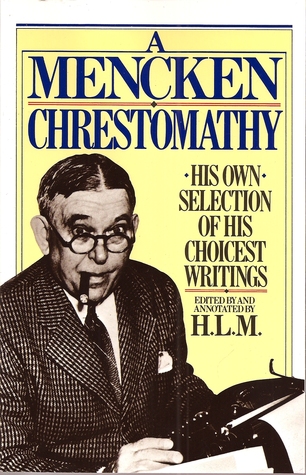You can’t be an English teacher without some experience with Shakespeare. No doubt we have all read him…or the Spark Notes version of Willy.
I’m not stupid, I know a decent amount of students end up reading Spark Notes
instead of the actual plays, but a teacher can dream!
 In episode
four, Rory is studying for an important English test on Shakespeare. I’m goingThe Comedy of
Errors, which also happens to be the first play Shakespeare wrote. Lorelai
has Rory recall the date that the play was written (1590) and the date that it
was published (1623); however, Rory has trouble remembering the latter.
Lorelai, though, has a rule that any date within a hundred years is close
enough. My history teacher friends would say otherwise…
In episode
four, Rory is studying for an important English test on Shakespeare. I’m goingThe Comedy of
Errors, which also happens to be the first play Shakespeare wrote. Lorelai
has Rory recall the date that the play was written (1590) and the date that it
was published (1623); however, Rory has trouble remembering the latter.
Lorelai, though, has a rule that any date within a hundred years is close
enough. My history teacher friends would say otherwise…
I am fairly
well versed in Shakespeare, but I definitely would not say I am an expert. I
own a Riverside Shakespeare Complete
Works and have spent a couple of weeks studying at Stratford-upon-Avon, but
there is so much more that I want to know. Many people groan at the thought of
reading Shakespeare because the language is difficult to understand. That is
precisely why I enjoy reading Shakespeare! I enjoy the challenge. I find it
rewarding to read something that takes me a little bit of time to decipher. It is fun
to pick apart the language and discover the double meanings at play. No matter
how many times you read or see a Shakespeare play, there is always something
new to uncover.
The Comedy of Errors is a new play for
me. I have read several of Shakespeare’s comedies (As You Like It, Twelfth Night, A Midsummer Night’s Dream)
throughout my education, but never this one. Perhaps this is because in
comparison to Shakespeare’s other comedies, The
Comedy of Errors falls a bit short. Don’t get me wrong, it is still
Shakespeare so therefore it is still infinitely better than a lot of
literature. But it can be argued that Shakespeare plays with similar themes and motifs better in
other plays. This comedy is often defined as a farce, a type of comedy that
resorts to cheap slap-stick humor and crude jokes. The characters are
archetypes without much development. With so many more well developed
characters and clever jokes in other plays, The Comedy
of Errors just doesn’t compare.
The Comedy of Errors focuses on
two sets of twins who are torn apart from their siblings when they are babies.
Sounds confusing, right? It gets more confusing when it is revealed that the twins have the same
name. There is Antipholus of Ephesus and Antipholus of Syracuse. Each
Antipholus brother has a slave by the name of Dromio so there is also a Dromio
of Ephesus and Dromio of Syracuse. This made it confusing to read and the
narrative difficult to follow. However, it was necessary that the twins had the
same name because it lead to the majority of the comedic situations. Personally,
I found the comedy in this play frustrating because you can see what is going
to happen before it does. It is like an episode of I Love Lucy. The situation is over exaggerated and repeats itself
through the play. Each character is aware that they have a twin so why don't they realize what is going on sooner? How many times do the twins have to As You Like it and Twelfth Night. Shakespeare also didn't
have to spend thirty lines comparing the size of a woman’s butt to different
countries (“She is spherical like a globe. I could find out countries in her.”).
Those thirty lines could have been better spent, but I guess butt jokes just never get old.
 |
| I always wished I could study at Luke's |
Shakespeare
touches on a fear that reappears throughout literature in this play. I
previously discussed the fear of the doppelgänger in relation to The Prince and the Pauper. The fear of
the doppelgänger is rooted in the fear of someone not believing that you are
you. What happens when even your closest family and friends don’t recognize you
as you or believe that someone else is you? It makes you question your sense of
self. If the people who claim to know you the best can’t recognize you or tell
you apart from an imposter, what does that say about who you are? In many of
his plays, Shakespeare focuses on this theme whether it is in his comedies,
tragedies, or histories.
Next on the list is one of Shakespeare’s histories (and
tragedies), The Tragedy of Richard the
III. This one is also new to me and I am looking forward to reading it as I am also a history buff.
Some of my favorite lines from this play:
- “If the skin were parchment and the blows you gave were
ink,
Your handwriting would tell you what I think.”
- “Every why hath a wherefore.”
- “And now let’s go hand in hand, not one before another.”
Pictures:
- https://ctxlivetheatre.com/static/media/uploads/posters/comedy_of_errors_opt.jpg
- http://www.shakespearesglobe.com/images/9044/normal
- https://watchusplaygames.files.wordpress.com/2012/05/luke-pie-violent-pencil-throwing-rory-gilmore-girls-deer-hunters-episode-4-season-1-screenshot.jpg

.jpg)





